Designing for the HERO
written by Ryan Gerber, Founder and CEO
As technologies grow increasingly complex and integrate into every corner of our lives, possessing the power to activate us or burn us out, we need a new guiding framework to create responsible technologies. Today, we're looking beyond the 'user' and designing for the HERO.
Introduction
I love the Winston Churchill quote:
"We shape our buildings, and afterwards they shape us."
This sentiment holds true not just for physical structures but also for technology that permeates our lives.
In our innovation research on the future of immersion and artificially empowered agents, we've discovered a fascinating trend. When asked to envision the form and potential of new technologies, people often reference stories, video games, and movies like Harry Potter or Iron Man to describe their dream experiences and expectations. What does this tell us about how we perceive ourselves in relation to technology?
The concept of the hero, no longer reserved for gods and kings, aligns with a broader cultural shift where everyday individuals see themselves as the protagonists of their own life stories.
So, what defines a hero? I argue that a hero is an empowered individual who makes conscious choices about their own growth and development. This contrasts with our previous understanding of the 'user,' often a faceless member of a population whose choices we carefully dictate to guide them towards predetermined outcomes. While the user perspective has its merits, it rarely challenges us to think bigger or step aside and empower humans to wield technology. While the user remains relevant, the hero perspective offers a broader lens through which we can explore the transformative role of technology in our lives.
So, how do we design for the hero?
_________________
“…a hero is an empowered individual who makes conscious choices about their own growth and development.”
________________
The HERO Framework
Human - How do we design for the holistic needs of individuals?
Existential - What is the personal meaning and significance of our technological solutions?
Relationship - How can we foster meaningful and enduring connections between people and systems?
Orientation - How can our solutions adapt and align themselves with the evolving needs of the humans who use them?
Illustrating the HERO Ideology
Designing for the Whole Human: Exploring solutions that go beyond surface-level experiences to address the emotional, cognitive, and physical aspects of human well-being.
Finding Meaning in Technology: Uncovering the deeper purpose and existential value that technology can offer, beyond mere functionality.
Building Enduring Connections: Examining how technology can facilitate and enhance relationships, fostering collaboration, empathy, and inclusivity.
Adaptive and Responsive Solutions: Demonstrating the importance of designing technologies that can seamlessly evolve and adapt to the changing needs and preferences of users.
Empowering Individuals: Highlighting real-world examples where technology empowers individuals to take control of their lives, amplifying their capabilities and facilitating personal growth.
Embracing the HERO Ideology
In an era where technology plays an increasingly pervasive role, we must embrace the hero ideology to design responsible and impactful solutions. By considering the holistic needs of individuals, the personal significance of our creations, the power of enduring relationships, and the adaptive nature of technology, we can shape a future where technology truly empowers and enhances the lives of its users.
Join the HERO Movement
Are you ready to be part of the Hero Movement? As designers, innovators, and creators, we have the power and responsibility to shape the future of technology. Let us design with the hero in mind, unlocking the full potential of technology while preserving the agency and well-being of individuals. Together, we can create a world where technology truly serves as a force for positive change and personal growth.
Ryan Gerber has been a design leader at Quest Labs since its founding in 2020. He’s been an active member of the Seattle design community at the University of Washington, HTC, and Artefact.

